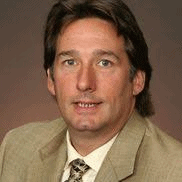You are in debt and are now receiving letters and phone calls demanding payment. Many people go through this, so you are not alone. You would like to pay your bills, but you have reached a point where payment is impossible. The amounts you owe are beyond your ability to pay. What to do? While the concept of filing bankruptcy may not be the most pleasant choice, it may be the only choice that allows you to reset your finances and begin again.
Can Creditors Still Go After Payment?
No. When you file for bankruptcy relief, the court sends notice of your case to all creditors listed on your petition. The moment you file your bankruptcy case, an automatic stay goes into effect. The stay prohibits almost all creditors from initiating or continuing any collection activities against you. A creditor cannot call you, send you collection letters, file a lawsuit, or otherwise attempt to collect its debt from you.
What Bankruptcy Protects
Automatic stays on payments generally include non-priority unsecured debts:
- credit card charges (including overdue and late fees)
- collection agency accounts
- medical bills
- personal loans from friends, family, and employers
- utility bills (past due amounts only)
- dishonored checks (unless based on fraud)
- student loans (only if you can prove undue hardship)
- repossession deficiency balances
- auto accident claims (except those involving drunk driving)
- business debts
- money owed under lease agreements (includes past due rent)
- civil court judgments (unless based on fraud)
- tax penalties and unpaid taxes past a certain number of years
- attorney fees (except child support and alimony awards)
- revolving charge accounts (except extended payment charges)
- social security overpayments, and
- veterans assistance loans and overpayments.
Debts Not Covered by Bankruptcy Automatic Stays
- Debts that you left off your bankruptcy petition, unless the creditor knew of your filing
- Many types of taxes
- Child support or alimony
- Fines or penalties owed to government agencies
- Most student loans
- Personal injury debts arising out of a drunk driving accident
- Debts arising out of tax-advantaged retirement plans
- Condo or cooperative housing fee debts
- Attorneys’ fees for child custody or support
- Criminal restitution and other court fines or penalties
What About Mortgage Debt?
Under Chapter 7
When you file Chapter 7, your existing property will be deemed either exempt or nonexempt. Exempt means you’ll be able to keep the property throughout the bankruptcy process, as long as you can catch up and stay current on your payments. Nonexempt means you will either be required to surrender the property or pay its value in cash as a part of the bankruptcy terms.
Under Chapter 13
When you file Chapter 13, property mortgage debts will fall under the automatic stay and you will not lose your property. However, a repayment plan must be in place to catch up on mortgage payments.
Get legal advice
If you have incurred any obligations beyond covered debts despite living a typical lifestyle, get an attorney who can sort out your bankruptcy options. Items not included in a bankruptcy filing may result in the need to pay debts that you still cannot manage.
Do you live in Minnesota? Are you thinking of filing for bankruptcy? Let the experts at Hoverson Law help you make the right decision. Call now at (612) 349-2728.

